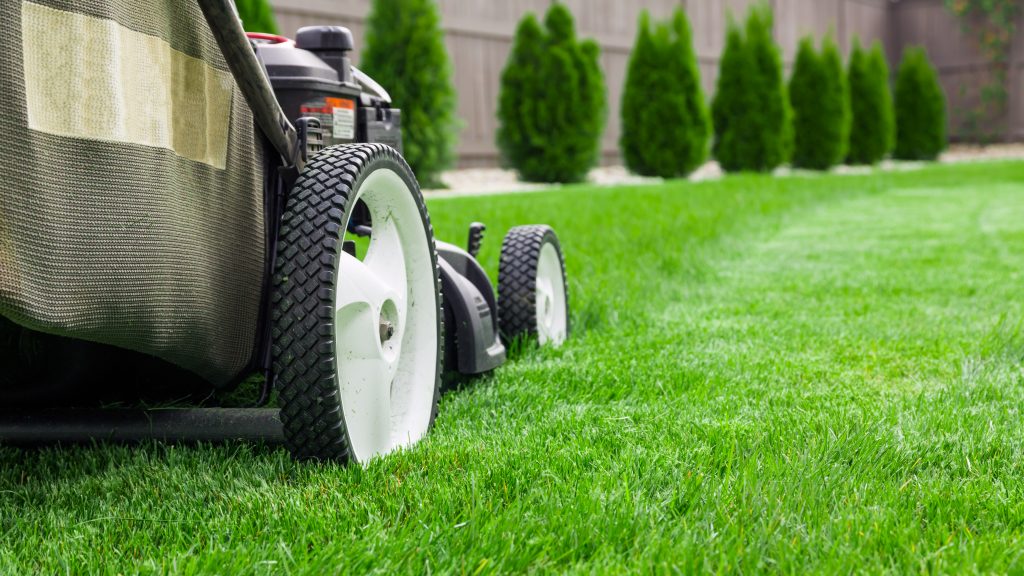Top Lawn Care Tips As Winter Approaches
If you want to see a greener and more beautiful lawn in spring, you have to ensure that your lawn can survive the harsh, cold climate during the winter season. But how do you go about lawn care before your lawn freezes over?
Below are some top lawn care tips as winter approaches.
Change Your Irrigation Schedule
As the cold climate begins, your lawn won’t need the amount of water you give it during summer. So, as winter approaches, make sure to change your watering schedule, which depends on the weather you live in. If you’re unsure what to do with your lawn, contact a lawn care professional, like Greener Acres Lawn Care.
Take a look at the following winter lawn irrigation tips:
- If You Live In A Warmer Climate: Water irrigation must be reduced. Avoid using your water sprinklers like you used to in the summer. Overwatering your lawn will cause more damage because the soil will be too saturated. For those with automatic sprinklers, changing the irrigation schedule is required. On the other hand, operating the irrigation system manually would require a quick check before turning on the spigot.
- If You Live In A Colder Climate: You must completely halt watering your lawn as it won’t need any water as winter approaches. Moreover, the pipes of sprinkler systems tend to freeze and burst during the winter. To avoid this from happening, make sure to drain your water sprinkler completely. Modern sprinkler systems have auto-draining valves, which makes this job a lot easier. You can call the sprinkler system manufacturer to avoid damaging it while draining incorrectly and prevent a costly replacement.
Rake The Leaves
Raking wet leaves before winter is important, as frozen leaves can damage your lawn and turn into a big patch of dirt during spring. Consider using dead leaves as compost. It’s one way to fertilize your soil than leaving them on your lawn.
If you have a few leaves scattered about, mow your lawn so the leaves will be chopped. By doing so, the chopped leaves will become a compost layer, serving as an organic fertilizer for your lawn. For those who have a mulching mower, spread the leaves evenly so as to avoid heavy-weight leaves settling on your lawn during winter.
Mow Just Enough
Mowing too short a time during winter can do more harm than good to your lawn. On the other hand, mowing too long will leave the grass too sparse and thin. With the right mowing technique, you’ll safeguard the health of your lawn.
Check the following lawn care tips:
- If You Live In A Warm And Arid Climate: If you reside in an area with average rainfall, you can mow as you used to. Some of the grass will die and this layer can hold moisture during winter.
- If You Live In A Cool Climate: Your grass should regrow during spring so lower the blades when mowing if you live in a cool climate. Keep the lawn short by 3/4 of an inch. Short grass will not be broken or matted down by frost.
Fertilize Your Lawn
During early fall or late summer, fertilize your lawn, so the roots of the grass will have the strength necessary to survive the harsh winter. The perfect time to feed the lawn is late fall. Keep your lawn healthy and greener by applying a regular dose of fertilizer.
During autumn, the grass will absorb everything you give. Take this opportunity to provide the nutrition your lawn needs. This way, your lawn will be lush and green during springtime.
Check The Soil’s pH
The soil’s pH and the nutrients the grass absorbs have a direct relationship. Regardless of where you live, it’s important to check the soil’s pH. Soil that’s too acidic will keep the lawn from getting ample nutrients. The best time to check the pH of the soil is late fall. You can buy a pH meter, which is about USD$50 or less. Follow the manufacturer’s instructions to ensure accurate results.
Conclusion
Prepare your lawn when winter approaches by reducing the water it receives and raking the heavy weight layer of leaves. Also, it helps fertilizing your lawn to provide your grass with the strength to survive the harsh weather. To ensure that the lawn gets the right nutrients before winter, checking the soil’s pH is also important. By following the above-mentioned lawn care tips, you’ll have the peace of mind of seeing a more beautiful lawn during spring.




